Find The Best Demolition Contractors On ExcavationHQ.com
Find & Hire Trusted Demolition Specialists
ExcavationHQ.com connects you with vetted demolition contractors for any project. Get free quotes, compare services, and find the perfect match for your demolition needs in USA. Whether you need residential, commercial, or industrial demolition, we've got you covered.
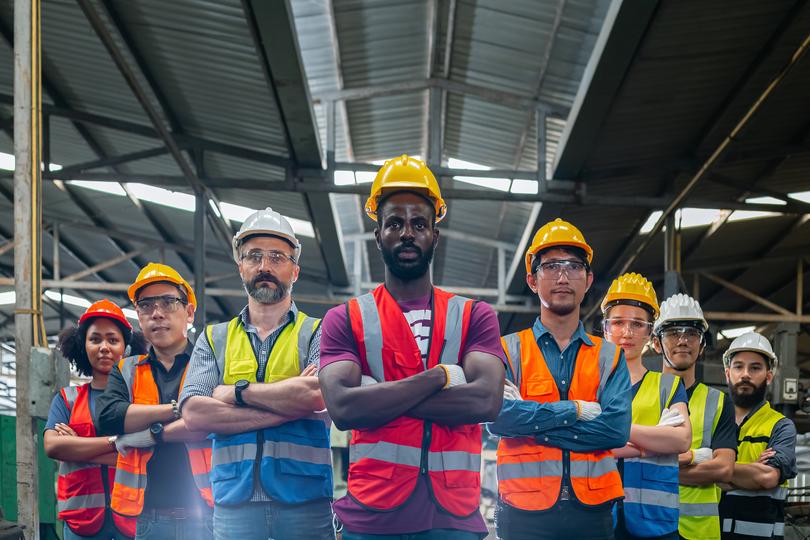
Demolition Contractors Near Me
Looking for demolition contractors in a specific location? Browse our directory to find demolition experts near you across USA.
Finding The Right Demolition Contractor Is Easy With ExcavationHQ.com
We make it simple to connect with vetted demolition professionals across USA.
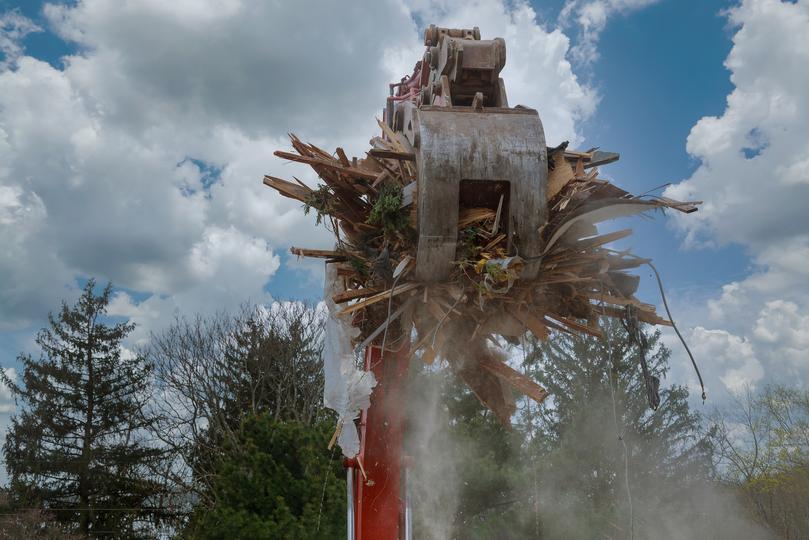
- Tell Us About Your Demolition Project
- Describe your demolition needs, whether it's for a house, building, interior demolition, or other structures. Tell us about the property and your budget.
- We Connect You With Local Demolition Contractors
- We'll match you with reputable demolition contractors in your area who specialize in your project type and have experience with similar demolitions.
- Compare Quotes & Choose The Best Fit
- Review quotes, compare services, and choose the demolition contractor who best meets your requirements and budget. We provide you with the information you need to make an informed decision.
- Get Your Project Started!
- With the right demolition contractor on board, you can start your demolition project with confidence, knowing you're in good hands.
Why Choose ExcavationHQ for Your Demolition Project?
Why Choose ExcavationHQ for Your Excavation Needs?
We make it easy to find qualified and reliable demolition contractors in the USA. Here's why ExcavationHQ is the best choice for your next demolition project: We make it easy to find and compare qualified excavation pros in your area. Here's how:
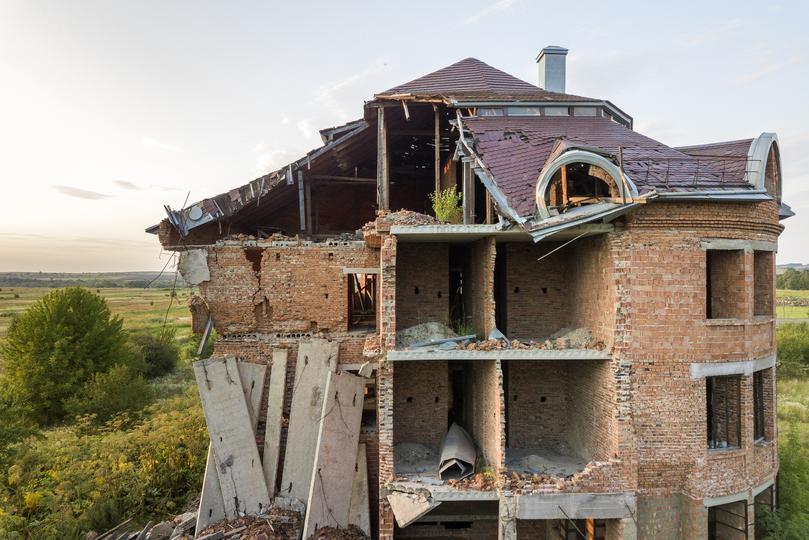
- Vetted & Trusted Contractors
- We carefully vet all demolition contractors listed on our directory, ensuring they are licensed, insured, and have a proven track record of safe and efficient demolition work.
- Get Competitive Quotes
- Compare prices from multiple demolition contractors and find the best deal for your project. We make it easy to see all your options side-by-side so you can make an informed decision.
- Save Time & Effort
- Let us do the work for you! Find the right demolition contractor quickly and easily without endless searching. Simply submit your project details and we'll connect you with qualified professionals.
- Wide Range of Services
- We offer a comprehensive directory of demolition contractors specializing in various services, from small residential demolitions to large-scale commercial projects.
- Expert Support
- Our team is here to help you every step of the way. From finding the right contractor to answering your questions, we're dedicated to ensuring a smooth and successful demolition project.
- Free & Easy To Use
- ExcavationHQ is a free platform that connects you with demolition contractors. There are no fees or obligations to use our service. Get started today and find the right demolition professional for your needs.
Need Demolition Services for Your Business?
Commercial Demolition Services
Find trusted commercial demolition contractors on ExcavationHQ. We have specialists for building demolition, interior demolition, selective demolition and more. Our contractors are experienced in working on a variety of commercial properties, including offices, retail spaces, warehouses.
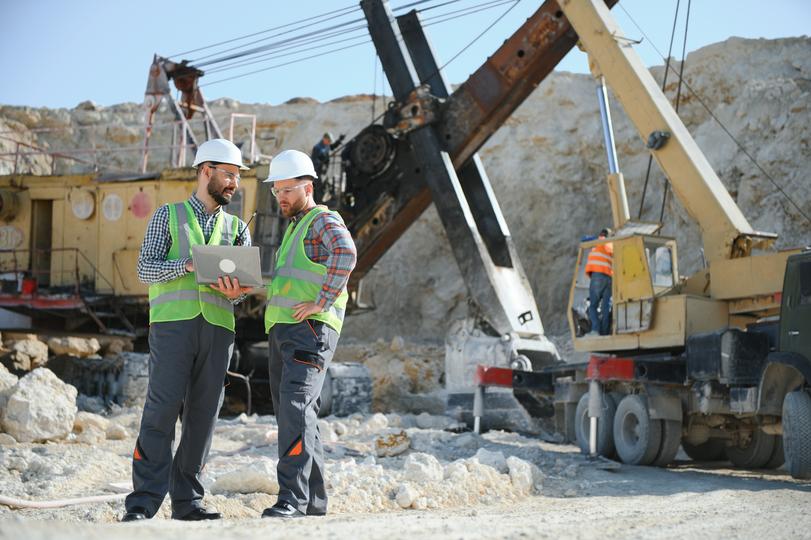
Find reliable excavation contractors near you. Get quotes for site preparation, grading, trenching, and more.

Need a structure removed safely and efficiently? Find experienced demolition contractors for projects big and small.
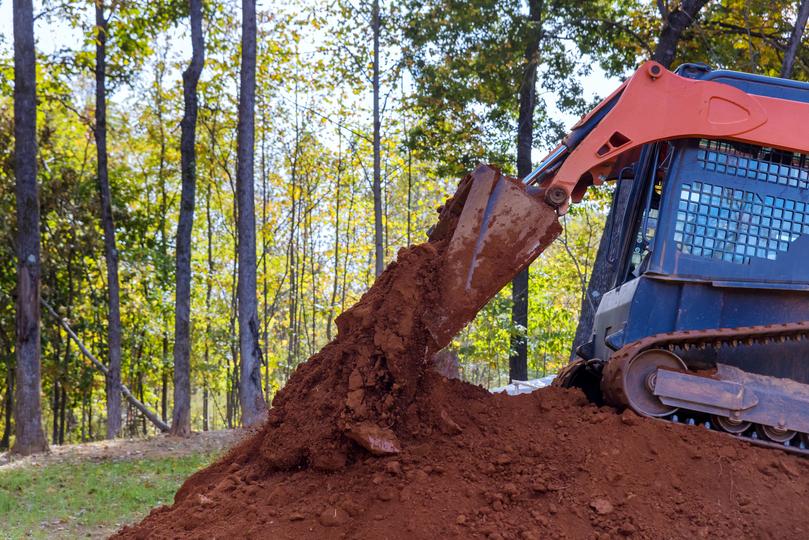
From hauling to delivery, find dirt contractors that can handle your soil and aggregate needs for any project.
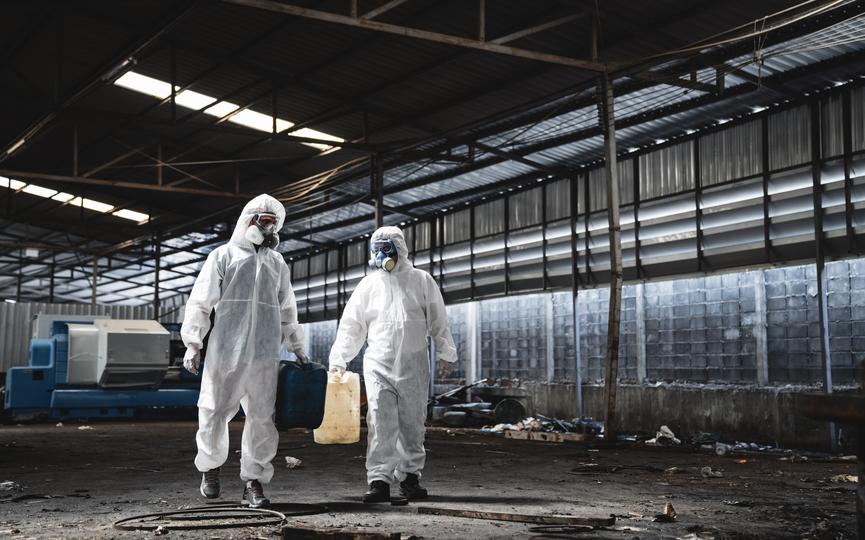
Protect your health and property with certified asbestos removal contractors. Find experts in asbestos abatement and disposal.
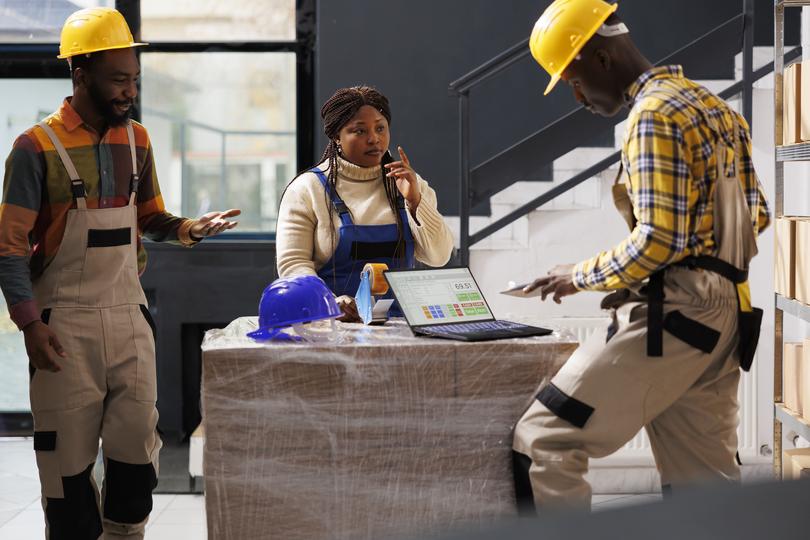
Find reliable and experienced construction companies in your area for new home builds, renovations, and commercial projects.
Need Demolition Services for Your Home?
Residential Demolition Services
ExcavationHQ connects you with reliable residential demolition contractors. Find experts for interior demolition, partial demolition, swimming pool removal. We can help you find the right contractor for your house, bungalow, cottage.

Find reliable excavation contractors near you. Get quotes for site preparation, grading, trenching, and more.

Need a structure removed safely and efficiently? Find experienced demolition contractors for projects big and small.

From hauling to delivery, find dirt contractors that can handle your soil and aggregate needs for any project.

Protect your health and property with certified asbestos removal contractors. Find experts in asbestos abatement and disposal.

Find reliable and experienced construction companies in your area for new home builds, renovations, and commercial projects.
Ready to Start Your Demolition Project?
Find The Best Demolition Contractors on ExcavationHQ!
Get free quotes, compare services, and connect with trusted demolition professionals in the USA. Start your project today!
Demolition Glossary
Asbestos Abatement
Demolition Permit
Deconstruction
Implosion
Wrecking Ball
High-Reach Demolition
Selective Demolition
Interior Demolition
Site Remediation
Hazardous Waste
Reclamation
Top-Down Demolition
Dismantling
Controlled Demolition
Soft Stripping
Frequently Asked Questions About Demolition Contractors
How do I find a reputable demolition contractor?
- Experience: Look for companies with a proven track record and years of experience in the demolition industry.
- Licensing and Insurance: Ensure the contractor is properly licensed to operate in your area and carries adequate insurance to protect you from liability.
- Safety Record: Inquire about their safety protocols and accident history. A reputable contractor prioritizes safety.
- References and Reviews: Ask for references from past clients and check online reviews to gauge their reputation and customer satisfaction.
- Professionalism: Choose a company that communicates clearly, provides detailed estimates, and has a courteous and responsive team.
How much does demolition cost in the USA?
- Size and Complexity of the Structure: Larger and more complex structures, such as multi-story buildings, require more time, labor, and specialized equipment, increasing costs.
- Type of Demolition: Different demolition methods, such as implosion, wrecking ball, or high-reach demolition, have varying costs.
- Material Disposal: Disposal fees for demolition debris can contribute significantly to the overall cost, depending on the type and quantity of materials.
- Location and Accessibility: Demolition in densely populated areas or with limited access may require more planning and specialized equipment, affecting costs.
- Hazardous Materials: The presence of asbestos, lead paint, or other hazardous materials requires specialized removal and disposal procedures, adding to the expenses.
What are the different types of demolition?
- Implosion: Using explosives to collapse a structure inwards rapidly. Suitable for large buildings in open areas.
- Wrecking Ball: Swinging a large steel ball to impact and break down the structure. Effective for bringing down walls and other solid elements.
- High-Reach Demolition: Utilizing specialized excavators with extended arms and demolition attachments for dismantling tall structures piece by piece.
- Selective Demolition: Removing specific parts of a building while preserving other sections. Often used in renovation projects.
- Deconstruction: Carefully dismantling a building to salvage reusable materials, reducing waste and environmental impact.
What questions should I ask a demolition contractor before hiring them?
- 'Can I see proof of your licensing and insurance?' Verify their credentials and coverage.
- 'What experience do you have with projects like mine?' Ensure they have relevant expertise.
- 'Can you provide references from past clients?' Check their reputation and customer satisfaction.
- 'What are your safety protocols?' Prioritize contractors who emphasize safety.
- 'How will you handle hazardous materials?' Ensure they have proper procedures for asbestos or lead abatement.
- 'What is your timeline for completing the project?' Understand the project duration.
- 'How will you manage noise, dust, and debris?' Discuss mitigation measures for minimizing disruption.
- 'What are your payment terms?' Clarify payment schedules and any required deposits.
Do I need a permit for demolition?
What are the safety precautions for demolition?
- Site Security: Secure the demolition site with fencing and warning signs to prevent unauthorized access.
- Personal Protective Equipment (PPE): Workers should wear appropriate PPE, including hard hats, safety glasses, gloves, and steel-toe boots.
- Hazardous Material Removal: Properly identify and remove asbestos, lead paint, or other hazardous materials before demolition begins.
- Utility Disconnections: Disconnect all utilities, such as electricity, gas, and water, before demolition.
- Controlled Demolition Techniques: Employ controlled demolition methods to minimize risks and ensure the structure comes down safely.
- Dust Control: Implement dust suppression measures, such as water spraying or misting, to reduce airborne particles and protect air quality.
- Emergency Planning: Have an emergency plan in place, including communication protocols and evacuation procedures, in case of unforeseen events.
What happens to the debris after demolition?
- Recycling: Concrete, brick, metal, and wood can be recycled and reused in other construction projects, reducing waste sent to landfills.
- Landfill Disposal: Non-recyclable materials are disposed of in designated landfills according to local regulations.
- Donation: Some materials, such as fixtures or appliances, may be suitable for donation to charitable organizations.
How long does a demolition project take?
What is the difference between demolition and deconstruction?
Demolition: Typically involves bringing down a structure quickly and efficiently, often using heavy machinery and potentially explosives. The primary goal is to clear the site.
Deconstruction: Focuses on carefully dismantling a building piece by piece to salvage reusable materials. It prioritizes minimizing waste and environmental impact, often involving manual labor and specialized tools.
The choice between demolition and deconstruction depends on the project's objectives, budget, and environmental considerations.
Can I do demolition myself?
What are the environmental impacts of demolition?
- Waste Generation: Demolition generates a large volume of debris, contributing to landfill space and potentially releasing harmful substances into the environment if not disposed of properly.
- Air Pollution: Dust and particulate matter released during demolition can impact air quality, affecting human health and the environment.
- Noise Pollution: Demolition activities can generate significant noise, disturbing nearby residents and wildlife.
- Resource Depletion: Demolition consumes resources that could be salvaged and reused, contributing to resource depletion and environmental degradation.
How do I prepare my property for demolition?
- Clear the Site: Remove all furniture, appliances, personal belongings, and any valuable items from the structure.
- Secure the Perimeter: Fence off the demolition area to prevent unauthorized access and protect surrounding property.
- Disconnect Utilities: Arrange for the disconnection of electricity, gas, water, and other utilities servicing the building.
- Hazardous Material Abatement: If asbestos, lead paint, or other hazardous materials are present, have them professionally removed before demolition begins.
- Notify Neighbors: Inform your neighbors about the demolition schedule to minimize disruptions and address any concerns.
- Obtain Permits: Ensure all necessary demolition permits are in place before starting work.
What is asbestos abatement?
What are the different methods of asbestos abatement?
- Enclosure: Sealing off the asbestos-containing material to prevent fiber release.
- Encapsulation: Coating the asbestos-containing material with a sealant to bind the fibers.
- Removal: Carefully removing the asbestos-containing material and disposing of it safely.
How can I tell if my building contains asbestos?
What is a demolition bond?
How do I choose the right demolition method for my project?
- Size and Type of Structure: The method should be suitable for the structure's size, height, and construction materials.
- Site Location and Accessibility: The method should be feasible given the site's location, surrounding buildings, and access constraints.
- Environmental Considerations: Prioritize methods that minimize environmental impact, such as deconstruction or selective demolition if feasible.
- Budget: Different demolition methods have varying costs, so choose one that fits your budget.
- Safety: Prioritize methods that ensure worker safety and minimize risks to surrounding areas.
What is the role of a demolition consultant?
- Feasibility Studies: Assessing the viability and challenges of a demolition project.
- Demolition Planning: Developing demolition plans, including method selection, sequencing, and safety procedures.
- Permitting Assistance: Navigating the demolition permitting process and ensuring compliance with regulations.
- Hazardous Material Surveys: Identifying and managing hazardous materials, such as asbestos and lead paint.
- Cost Estimating: Providing accurate cost estimates for demolition services.
- Project Management: Overseeing the demolition process and ensuring it proceeds as planned.
What is the importance of insurance in demolition projects?
- General Liability Insurance: Covers bodily injury or property damage to third parties caused by the contractor's negligence.
- Workers' Compensation Insurance: Provides benefits to workers injured on the job.
- Pollution Liability Insurance: Covers costs associated with environmental contamination caused by demolition activities.
- Professional Liability Insurance: Protects against claims of negligence or errors in professional services, such as demolition planning or consulting.
How can I minimize the dust and noise from demolition?
- Dust Suppression: Use water spraying, misting systems, or other dust suppression techniques to control airborne particles.
- Noise Barriers: Erect temporary noise barriers around the demolition site to reduce noise transmission to nearby properties.
- Work Schedule: Schedule noisy demolition activities during permitted hours to minimize disturbance to neighbors.
- Communication: Keep neighbors informed about the demolition schedule and any potential disruptions.
What are the legal considerations for demolition projects?
- Permits and Regulations: Obtain all necessary demolition permits and comply with local building codes and environmental regulations.
- Contracts: Have a clear and comprehensive contract with the demolition contractor outlining the scope of work, payment terms, and liabilities.
- Environmental Laws: Comply with environmental laws regarding hazardous material removal, waste disposal, and pollution control.
- Neighboring Property Rights: Respect neighboring property rights and take measures to prevent damage or disruption to adjacent properties.
- Worker Safety: Adhere to worker safety regulations and provide a safe working environment for demolition crews.
What are the steps involved in a typical demolition process?
- Project Assessment: The demolition contractor evaluates the structure, site conditions, and project requirements.
- Permitting: Obtain necessary demolition permits from local authorities.
- Site Preparation: Secure the site, disconnect utilities, and remove any valuable or reusable items.
- Hazardous Material Abatement: Professionally remove asbestos, lead paint, or other hazardous materials if present.
- Demolition: Execute the chosen demolition method, bringing down the structure safely and efficiently.
- Debris Removal and Site Cleanup: Sort, process, and dispose of demolition debris responsibly. Clean up the site to prepare it for future use.
What are the benefits of hiring a professional demolition contractor?
- Safety: Experienced contractors have the knowledge, skills, and safety training to execute demolitions safely, minimizing risks to workers and surrounding areas.
- Efficiency: Contractors have the specialized equipment and expertise to complete demolitions efficiently, saving time and reducing project costs.
- Compliance: Reputable contractors are familiar with local regulations and permitting requirements, ensuring compliance and avoiding legal issues.
- Waste Management: Contractors have waste management plans to handle debris responsibly, including recycling and proper disposal.
- Liability Protection: Insured contractors protect you from financial responsibility for accidents or damages during the demolition process.
How do I find demolition contractors near me?
How do I find a reputable demolition contractor?
- Experience: Look for companies with a proven track record and years of experience in the demolition industry.
- Licensing and Insurance: Ensure the contractor is properly licensed to operate in your area and carries adequate insurance to protect you from liability.
- Safety Record: Inquire about their safety protocols and accident history. A reputable contractor prioritizes safety.
- References and Reviews: Ask for references from past clients and check online reviews to gauge their reputation and customer satisfaction.
- Professionalism: Choose a company that communicates clearly, provides detailed estimates, and has a courteous and responsive team.
How much does demolition cost in the USA?
- Size and Complexity of the Structure: Larger and more complex structures, such as multi-story buildings, require more time, labor, and specialized equipment, increasing costs.
- Type of Demolition: Different demolition methods, such as implosion, wrecking ball, or high-reach demolition, have varying costs.
- Material Disposal: Disposal fees for demolition debris can contribute significantly to the overall cost, depending on the type and quantity of materials.
- Location and Accessibility: Demolition in densely populated areas or with limited access may require more planning and specialized equipment, affecting costs.
- Hazardous Materials: The presence of asbestos, lead paint, or other hazardous materials requires specialized removal and disposal procedures, adding to the expenses.
What are the different types of demolition?
- Implosion: Using explosives to collapse a structure inwards rapidly. Suitable for large buildings in open areas.
- Wrecking Ball: Swinging a large steel ball to impact and break down the structure. Effective for bringing down walls and other solid elements.
- High-Reach Demolition: Utilizing specialized excavators with extended arms and demolition attachments for dismantling tall structures piece by piece.
- Selective Demolition: Removing specific parts of a building while preserving other sections. Often used in renovation projects.
- Deconstruction: Carefully dismantling a building to salvage reusable materials, reducing waste and environmental impact.
What questions should I ask a demolition contractor before hiring them?
- 'Can I see proof of your licensing and insurance?' Verify their credentials and coverage.
- 'What experience do you have with projects like mine?' Ensure they have relevant expertise.
- 'Can you provide references from past clients?' Check their reputation and customer satisfaction.
- 'What are your safety protocols?' Prioritize contractors who emphasize safety.
- 'How will you handle hazardous materials?' Ensure they have proper procedures for asbestos or lead abatement.
- 'What is your timeline for completing the project?' Understand the project duration.
- 'How will you manage noise, dust, and debris?' Discuss mitigation measures for minimizing disruption.
- 'What are your payment terms?' Clarify payment schedules and any required deposits.
Do I need a permit for demolition?
What are the safety precautions for demolition?
- Site Security: Secure the demolition site with fencing and warning signs to prevent unauthorized access.
- Personal Protective Equipment (PPE): Workers should wear appropriate PPE, including hard hats, safety glasses, gloves, and steel-toe boots.
- Hazardous Material Removal: Properly identify and remove asbestos, lead paint, or other hazardous materials before demolition begins.
- Utility Disconnections: Disconnect all utilities, such as electricity, gas, and water, before demolition.
- Controlled Demolition Techniques: Employ controlled demolition methods to minimize risks and ensure the structure comes down safely.
- Dust Control: Implement dust suppression measures, such as water spraying or misting, to reduce airborne particles and protect air quality.
- Emergency Planning: Have an emergency plan in place, including communication protocols and evacuation procedures, in case of unforeseen events.
What happens to the debris after demolition?
- Recycling: Concrete, brick, metal, and wood can be recycled and reused in other construction projects, reducing waste sent to landfills.
- Landfill Disposal: Non-recyclable materials are disposed of in designated landfills according to local regulations.
- Donation: Some materials, such as fixtures or appliances, may be suitable for donation to charitable organizations.
How long does a demolition project take?
What is the difference between demolition and deconstruction?
Demolition: Typically involves bringing down a structure quickly and efficiently, often using heavy machinery and potentially explosives. The primary goal is to clear the site.
Deconstruction: Focuses on carefully dismantling a building piece by piece to salvage reusable materials. It prioritizes minimizing waste and environmental impact, often involving manual labor and specialized tools.
The choice between demolition and deconstruction depends on the project's objectives, budget, and environmental considerations.
Can I do demolition myself?
What are the environmental impacts of demolition?
- Waste Generation: Demolition generates a large volume of debris, contributing to landfill space and potentially releasing harmful substances into the environment if not disposed of properly.
- Air Pollution: Dust and particulate matter released during demolition can impact air quality, affecting human health and the environment.
- Noise Pollution: Demolition activities can generate significant noise, disturbing nearby residents and wildlife.
- Resource Depletion: Demolition consumes resources that could be salvaged and reused, contributing to resource depletion and environmental degradation.
How do I prepare my property for demolition?
- Clear the Site: Remove all furniture, appliances, personal belongings, and any valuable items from the structure.
- Secure the Perimeter: Fence off the demolition area to prevent unauthorized access and protect surrounding property.
- Disconnect Utilities: Arrange for the disconnection of electricity, gas, water, and other utilities servicing the building.
- Hazardous Material Abatement: If asbestos, lead paint, or other hazardous materials are present, have them professionally removed before demolition begins.
- Notify Neighbors: Inform your neighbors about the demolition schedule to minimize disruptions and address any concerns.
- Obtain Permits: Ensure all necessary demolition permits are in place before starting work.
What is asbestos abatement?
What are the different methods of asbestos abatement?
- Enclosure: Sealing off the asbestos-containing material to prevent fiber release.
- Encapsulation: Coating the asbestos-containing material with a sealant to bind the fibers.
- Removal: Carefully removing the asbestos-containing material and disposing of it safely.
How can I tell if my building contains asbestos?
What is a demolition bond?
How do I choose the right demolition method for my project?
- Size and Type of Structure: The method should be suitable for the structure's size, height, and construction materials.
- Site Location and Accessibility: The method should be feasible given the site's location, surrounding buildings, and access constraints.
- Environmental Considerations: Prioritize methods that minimize environmental impact, such as deconstruction or selective demolition if feasible.
- Budget: Different demolition methods have varying costs, so choose one that fits your budget.
- Safety: Prioritize methods that ensure worker safety and minimize risks to surrounding areas.
What is the role of a demolition consultant?
- Feasibility Studies: Assessing the viability and challenges of a demolition project.
- Demolition Planning: Developing demolition plans, including method selection, sequencing, and safety procedures.
- Permitting Assistance: Navigating the demolition permitting process and ensuring compliance with regulations.
- Hazardous Material Surveys: Identifying and managing hazardous materials, such as asbestos and lead paint.
- Cost Estimating: Providing accurate cost estimates for demolition services.
- Project Management: Overseeing the demolition process and ensuring it proceeds as planned.
What is the importance of insurance in demolition projects?
- General Liability Insurance: Covers bodily injury or property damage to third parties caused by the contractor's negligence.
- Workers' Compensation Insurance: Provides benefits to workers injured on the job.
- Pollution Liability Insurance: Covers costs associated with environmental contamination caused by demolition activities.
- Professional Liability Insurance: Protects against claims of negligence or errors in professional services, such as demolition planning or consulting.
How can I minimize the dust and noise from demolition?
- Dust Suppression: Use water spraying, misting systems, or other dust suppression techniques to control airborne particles.
- Noise Barriers: Erect temporary noise barriers around the demolition site to reduce noise transmission to nearby properties.
- Work Schedule: Schedule noisy demolition activities during permitted hours to minimize disturbance to neighbors.
- Communication: Keep neighbors informed about the demolition schedule and any potential disruptions.
What are the legal considerations for demolition projects?
- Permits and Regulations: Obtain all necessary demolition permits and comply with local building codes and environmental regulations.
- Contracts: Have a clear and comprehensive contract with the demolition contractor outlining the scope of work, payment terms, and liabilities.
- Environmental Laws: Comply with environmental laws regarding hazardous material removal, waste disposal, and pollution control.
- Neighboring Property Rights: Respect neighboring property rights and take measures to prevent damage or disruption to adjacent properties.
- Worker Safety: Adhere to worker safety regulations and provide a safe working environment for demolition crews.
What are the steps involved in a typical demolition process?
- Project Assessment: The demolition contractor evaluates the structure, site conditions, and project requirements.
- Permitting: Obtain necessary demolition permits from local authorities.
- Site Preparation: Secure the site, disconnect utilities, and remove any valuable or reusable items.
- Hazardous Material Abatement: Professionally remove asbestos, lead paint, or other hazardous materials if present.
- Demolition: Execute the chosen demolition method, bringing down the structure safely and efficiently.
- Debris Removal and Site Cleanup: Sort, process, and dispose of demolition debris responsibly. Clean up the site to prepare it for future use.
What are the benefits of hiring a professional demolition contractor?
- Safety: Experienced contractors have the knowledge, skills, and safety training to execute demolitions safely, minimizing risks to workers and surrounding areas.
- Efficiency: Contractors have the specialized equipment and expertise to complete demolitions efficiently, saving time and reducing project costs.
- Compliance: Reputable contractors are familiar with local regulations and permitting requirements, ensuring compliance and avoiding legal issues.
- Waste Management: Contractors have waste management plans to handle debris responsibly, including recycling and proper disposal.
- Liability Protection: Insured contractors protect you from financial responsibility for accidents or damages during the demolition process.